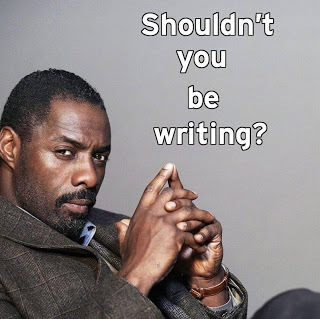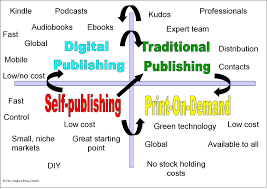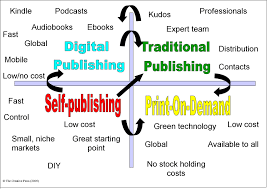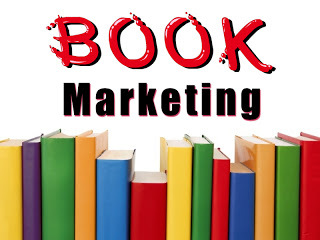Austin S. Camacho's Blog, page 9
July 9, 2016
Submitting To A Small Press
 As the editorial director of a small press - Intrigue Publishing - I’ve learned that there are many misconceptions about who we are, what we do and most importantly, how to work with us. I’d like to try to clarify some of that confusion.
As the editorial director of a small press - Intrigue Publishing - I’ve learned that there are many misconceptions about who we are, what we do and most importantly, how to work with us. I’d like to try to clarify some of that confusion.Our relationship with any author begins with a manuscript submission so let’s start with how that goes. We don’t have pre-readers – all the principals of the company will read your book before we make an offer. Our acquisition process considers three things: you, your story and your writing.
Because we’re a genre fiction house any manuscript we are attracted to must have a good (read interesting) story. Often a well written synopsis will reveal that. Like many small presses we specialize in specific genre: crime fiction, family drama, romance and young adult. If your story doesn’t fit into one of those categories it doesn’t matter how good it is, it’s not for us. And note our name – we are looking for stories with intrigue! It’s hard to define, but we know it when we see it. Generally our President, Denise, determines if the story is for us. If she says yes, the book comes to me.
As the Editorial Director I focus on the writing. But before I evaluate the prose I evaluate the submission. Did the author read and follow our submission guidelines? Like many small presses we specify the font, size and margins we want. I look to see if the header is what I want, if the pages are numbered, if it’s double spaced. If your manuscript doesn’t look professional, and if you didn’t follow our submission guidelines, I may never read any of your prose. If I do, I’ll evaluate the strength of your writing. Have you mastered the basics of spelling, grammar and sentence construction? How well do you handle pacing, conflict, tension, suspense and character development? Does your story have a nice hook at the start and build to a big and satisfying finish? At the end I ask myself “Was it fun?”
If I love it, it goes to Sandra, our Marketing Director. She will read it with a different consideration – can we sell this story? Do we know how to market it and who to market it too? If her answer is yes (and she loves the read too) she’ll go to the internet looking for you. We need to know if you have a platform – a group of people already predisposed to want your book when it comes out. AND, do you know how to make friends and get them on your side? She’ll look for a web site, Facebook page, Twitter feed, and a blog. She’ll want to see if you’re engaging, and even more important, do you post frequently? A web site advertising events that happened a year ago is worse than no site at all. The same goes for a Facebook page that you haven’t posted on in a couple of weeks.
If we love your story, love your writing, believe we can do you justice marketing it, and believe you’ll work with us to make your book as good as it can be and get it into the hands of readers, you’ll get an offer from us. I’ll talk about what that’s like next week.
Published on July 09, 2016 17:05
July 2, 2016
PUBLISHING OPTIONS PT 2
 We’ve been discussing publishing choices: do you submit to a major publisher, talk to a small press, or self-publish. Before you decide you need ask yourself what’s important to you.
We’ve been discussing publishing choices: do you submit to a major publisher, talk to a small press, or self-publish. Before you decide you need ask yourself what’s important to you.Are you a control freak? If you are lucky enough to get a contract with a big publisher, know that you will surrender almost all control of the final product. I’ve had authors tell me that they hated the cover of their book when it came out, or the title the publisher chose, or that it was being labelled with the wrong genre. Small presses vary, but almost always you’ll get to at least discuss important choices. If you self-publish you will have control of every bit of your published book.
Are you in a hurry? With today’s technology you can self-publish a book in a matter of weeks. Major publishers can often take two years to get your book into stores. Small presses vary a lot in this regard, but I think one year is about the longest you’re likely to have to wait.
Do you understand the rights? Aside from hardcover and paperback, your story might work as excerpts, audio, ebook, or even a movie. All these options can be sold differently. Major publishers will want to own all those rights, plus foreign sales rights and probably a few more that I can’t think of right now. This is the real value of an agent – they will negotiate which rights you give up. On the other hand, a small press probably won’t ask for the rights they don’t know how to take advantage of. We at Intrigue Publishing don’t buy film rights because we don’t have the connections to market your book properly to that industry. Of course, if you self-publish you keep ALL the rights to your property, so if someone wants to make a movie from your novel they deal directly with you.
And how will people find your book? The big publishers have excellent distribution set up, to push their books into lots of bookstores across the country and many ebook outlets. Small presses don’t usually have the level of distribution the big guys have. And if you choose to self-publish you will find it very hard to get your book onto bookstore shelves outside your immediate area. Remember, not everyone buys their books from Amazon. So if you want to be widely known, this might be a consideration for you.
And finally, are awards important to you? Many major book awards are only available to books published by major publishers. Small presses can submit you to many but not all of them. And self-published authors are still blocked from some of the most coveted awards.
One final word: Your choice doesn’t have to be exclusive. You can submit one book to publishers while self-publishing another. You can submit to large publishers and if you have no luck turn to smaller ones. Just know the differences, and do what’s best for you.
Published on July 02, 2016 10:41
June 26, 2016
How Shall I Publish?
 As I said last week, When your manuscript is finished and polished, you might want to submit it to a major publisher, small presses are also an option, and for some self-publishing might be the right choice. What’s the difference? Here are some thought might help you choose.
As I said last week, When your manuscript is finished and polished, you might want to submit it to a major publisher, small presses are also an option, and for some self-publishing might be the right choice. What’s the difference? Here are some thought might help you choose.Of course, one of the biggest differences between the publishing options has to do with the money. A publisher has to invest in the books they choose. In the case of major publishers, authors get a nice advance against projected royalties. Once the advance is earned the author gets a pre-determined percentage of the money on further book sales, usually around 8 percent, although some companies will give you a percentage of the net (their profit) instead of the gross (cover price.) Those royalties will be paid quarterly or semi-annually, with a certain amount held back against returns.
Some but not all small presses pay advances just as described above, but in every case they make the investment to get your book printed, shipped and sold. If you self-publish, you invest your money into the project and receive all the proceeds after the book store and distributor take their cut.
When you submit to a major press your book is one of thousands they see every year. That’s not to say yours can’t rise to the top. Naturally the quality of your writing could make your book the one they choose to publish, but that’s not the only factor. Their acquisition team will consider your story’s sales potential and how well it matches their style. Luck will play a part too. You could be pushed aside if they already have something on their schedule that is very similar to yours, if they’ve already filled the year’s schedule, or if the subject matter just isn’t what they think is hot right now. As you can see the timing can matter in ways you have no control over.
If you decide to aim at a small press, quality, sales potential and matching the publisher’s style will still be major factors. But in most cases your book will be considered on its own so luck is less of a factor and you, the author, are more important. The small staff will often reject even a great book if they sense that they won’t be able to work with the author. The more excited you are about your book, the more you ae willing to accept edits, and the more likely you are to be a strong partner in the marketing and promotion of your book, the more likely you are to be offered a contract
Naturally if you choose to self-publish, the only person you have to convince is you. If YOU think your book is good enough, and will sell enough, you can publish it.
There are lots more differences between the three publishing options, and I’ll talk about them next week.
Published on June 26, 2016 09:19
June 18, 2016
Publishing Then and Now: New Options
 While presenting at a writer’s conference today the Intrigue Publishing crew talked about the publishing options available to writers today. At one time self-publishing carried a huge stigma, and the bigger your publisher the better. This is no longer necessarily true. What changed? Well, if you will allow me to wax nostalgic for a bit, let’s compare today’s publishing landscape to the situation 20 years ago.
While presenting at a writer’s conference today the Intrigue Publishing crew talked about the publishing options available to writers today. At one time self-publishing carried a huge stigma, and the bigger your publisher the better. This is no longer necessarily true. What changed? Well, if you will allow me to wax nostalgic for a bit, let’s compare today’s publishing landscape to the situation 20 years ago.THEN – books were hard cover and paperback.NOW – ebooks are the choice of many readers.
THEN – books were sold in bookstores. .NOW – books are sold in Walmart, Target, drug stores, Costco, and on line. Amazon.com is the world’s biggest book seller. Plus there are ibooks and ebooks for several platforms.
THEN – Printing was an expensive processNOW – Printing is inexpensive and the print on demand process means you can make books one at a time if you want. Plus, e-books cost practically nothing to create..
THEN – Authors sold books to agents, who sold to publisher, who sold to bookstores, who sold to readers.NOW – Thanks to the internet, authors have the option to sell directly to readers
THEN – There were many large publishers to submit to.NOW – There are few big publishers, but lots of small publishers, vanity publishers and Print on Demand publishers.
THEN – big publishers maintained mid-list authors who could build a readership over time.NOW – big publishers only want blockbuster writers.
THEN – It was very hard to get published, but there were lots of book buyersNOW – It’s never been easier to be published, but never harder to sell books.
So how does a writer decide if he wants to be published by a major imprint, place his or her book with a small press, or self-publish? There are a lot of factors to consider. For example, there's the question of submissions.
To get your manuscript considered by a major publisher you must have an agent. Random House and Simon & Schuster only accept manuscripts submitted by agents. Once your agent submits to them months could pass before there is a response. In contrast, small presses do accept and in fact generally prefer un-agented submissions and will respond in weeks. Of course, if you choose to self-publish, you don’t have to submit anything to anyone. When you think your book is ready, you can put it out there.
But there are several other factors to consider before making the choice. I’ll get into many of them next week.
Published on June 18, 2016 18:35
June 12, 2016
More Great Web Sites for Authors
Last week I shared some of my favorite sites that I think are helpful to writers. Here are several more. Check them out and decide which ones you want to bookmark.
Writer Beware was the first author-focused web site I got turned on to. This is the place to check out every publisher, Print on Demand company, agent or publicist you might be planning to do business with. They are effectively the Better Business Bureau for writers. And if anyone in this business takes advantage of you or fails to live up to what they promised, this is where you report it.
If you want to tell your stories and get them into the social media workd, WattPad is a good place to start. It just might be the world’s largest community of writers and readers. Members can post - and read - original stories. You can get a conversation going and network in order to build buzz and extend your platform.
As its name implies, the Alliance of Independent Authors is an organization dedicated to indie authors. It’s a good place to find realistic marketing advice, its blog is very active, and it hosts events from time to time.
Another good place to find useful blogs is Digital Book World. Genuine experts in both publishing and marketing post here. Once you sign up you get a daily email sign up and every day you’ll get a daily email full of publishing news and useful links, especially for indie authors.
BookLife is a rather formal source of indie news and education. It has a broad view, as you might expect for a sight sponsored by Publisher’s Weekly.
Galley Cat is a somewhat less formal source for publishing news, but nonetheless a very valuable site.
Probably the most thorough newsletter tracking publishing changes, significant sales and the latest news of the business is put out by Publisher’sLunch. This one comes in two forms. You might want to stick with the free version, but for $20/month you also get access to an extensive database of valuable info.
Writing is as much a business as a craft. Staying informed about that business is vital if commercial success is among your goals. And that can start with any of the links I’ve shared in the last two blogs.
Writer Beware was the first author-focused web site I got turned on to. This is the place to check out every publisher, Print on Demand company, agent or publicist you might be planning to do business with. They are effectively the Better Business Bureau for writers. And if anyone in this business takes advantage of you or fails to live up to what they promised, this is where you report it.
If you want to tell your stories and get them into the social media workd, WattPad is a good place to start. It just might be the world’s largest community of writers and readers. Members can post - and read - original stories. You can get a conversation going and network in order to build buzz and extend your platform.
As its name implies, the Alliance of Independent Authors is an organization dedicated to indie authors. It’s a good place to find realistic marketing advice, its blog is very active, and it hosts events from time to time.
Another good place to find useful blogs is Digital Book World. Genuine experts in both publishing and marketing post here. Once you sign up you get a daily email sign up and every day you’ll get a daily email full of publishing news and useful links, especially for indie authors.
BookLife is a rather formal source of indie news and education. It has a broad view, as you might expect for a sight sponsored by Publisher’s Weekly.
Galley Cat is a somewhat less formal source for publishing news, but nonetheless a very valuable site.
Probably the most thorough newsletter tracking publishing changes, significant sales and the latest news of the business is put out by Publisher’sLunch. This one comes in two forms. You might want to stick with the free version, but for $20/month you also get access to an extensive database of valuable info.
Writing is as much a business as a craft. Staying informed about that business is vital if commercial success is among your goals. And that can start with any of the links I’ve shared in the last two blogs.
Published on June 12, 2016 16:20
June 5, 2016
Best of the Web for Writers
The internet is filled with resources for writers that are even more informative than my blog. Most of these websites are most valuable to the independent author or the writer working with a small press. If you’re a writer, you will want to check these sites regularly, and some you should bookmark.
I’ve talked about Goodreads before but it has to be high on this list. To readers it’s a social network, but for writers it’s a valuable tool for building your platform. If you don’t have a profile there you need to create one. You’ll find it easy to network with authors, reviewers, and most importantly, with readers.
Another web site worth visiting belongs to The Independent Book Publishers Association. The IBPA is a wonderful organization that, despite its name, is very valuable for writers. There is a registration fee, like any other association, but I think it is well worth it to get the great magazine, sit in on the informative webinars, and have the chance to attend the annual conference.
Have you seen Write On by Kindle? What’s cool is that you can both give feedback to others and get support yourself every step of the way through your creative process. As part of a virtual critique group you can read the writing of other authors and offer helpful feedback. Then you can post your own writing and hear from others about it.
Another bustling online community called SheWrites is only of interest to half of us. More than 27,000 authors have joined, and they range from seasoned pros to eager beginners. This is another opportunity to build a profile, then build a network, share your writing and wait for valuable advice. And you’ll find wide ranging discussions in the forum.
Christina Katz’s’ Writing and Publishing School blog is called Prosperous Writer. Her focus is generally on helping writers stay on track and follow through when they are tempted to give up. There are other cool features, like the “Writer Mamas” section aimed at mothers who want to give both their children and their writing enough time.
Kindle Boards /is a site hosting a series of conversation strings. There is really a ton of valuable information here about ebooks, promotion and publishing in general. Just be sure to spend your time on the most current and active conversations.
Next week I’ll point out some more valuable websites for writers to check.
I’ve talked about Goodreads before but it has to be high on this list. To readers it’s a social network, but for writers it’s a valuable tool for building your platform. If you don’t have a profile there you need to create one. You’ll find it easy to network with authors, reviewers, and most importantly, with readers.
Another web site worth visiting belongs to The Independent Book Publishers Association. The IBPA is a wonderful organization that, despite its name, is very valuable for writers. There is a registration fee, like any other association, but I think it is well worth it to get the great magazine, sit in on the informative webinars, and have the chance to attend the annual conference.
Have you seen Write On by Kindle? What’s cool is that you can both give feedback to others and get support yourself every step of the way through your creative process. As part of a virtual critique group you can read the writing of other authors and offer helpful feedback. Then you can post your own writing and hear from others about it.
Another bustling online community called SheWrites is only of interest to half of us. More than 27,000 authors have joined, and they range from seasoned pros to eager beginners. This is another opportunity to build a profile, then build a network, share your writing and wait for valuable advice. And you’ll find wide ranging discussions in the forum.
Christina Katz’s’ Writing and Publishing School blog is called Prosperous Writer. Her focus is generally on helping writers stay on track and follow through when they are tempted to give up. There are other cool features, like the “Writer Mamas” section aimed at mothers who want to give both their children and their writing enough time.
Kindle Boards /is a site hosting a series of conversation strings. There is really a ton of valuable information here about ebooks, promotion and publishing in general. Just be sure to spend your time on the most current and active conversations.
Next week I’ll point out some more valuable websites for writers to check.
Published on June 05, 2016 17:17
May 28, 2016
Low Budget Marketing 5: Get Attention
 I hope this series of blogs has broadened your perception of what activities can help your marketing efforts. This week I will share some simple and inexpensive things you can do to get the right people to notice your book.
I hope this series of blogs has broadened your perception of what activities can help your marketing efforts. This week I will share some simple and inexpensive things you can do to get the right people to notice your book.Pursuing reviews should be a part of your marketing plan. So why not decide, right now, to send your book to ten book reviewers this week? Keep your pitch simple, but personal (at least learn the reviewer’s name so you can address your note directly to them.)
You want blogger attention too. Find the ones that fit your book and pitch them. A guest blog is a great way to present your book to a new audience. You just need to convince them that news of your book will be of interest to their readers.
Don’t overlook local retailers. Why not just go around to them in person to see if they’ll carry your book? If you are independent you can offer a consignment deal. Look beyond book stores to gift shops, restaurants or coffee houses. You might be surprised at the extent to which neighborhood businesses will support local authors.
You can also get the attention of distant businesses. Go through catalogs you think your book would be appropriate for, and send them a packet about your book. Getting your book presented to buyers surrounded by non-book items can kick off a lot of sales, so look closely for items in catalogs that are natural tie-ins for you.
You want the attention of book clubs. To get it, develop a set of discussion topics or questions such clubs could use. Post them on your web site or some other place so they’re easy to download. Book club love these discussion-starters and are more likely to select your book if they know you’ve given them a place to start their discussion. Also, make sure you mention, on your list, that you’re happy to attend their meeting in person or thru a chat engine like Skype.
To maintain the attention of your current readers start an email newsletter. It is a great way to keep them updated and informed about your success (ditto friends and family.)
And finally, when a member of any of the above groups is helpful to you, send them a thank you note. Because they are so rare these days, an actual handwritten note says a lot about you, all good.
Published on May 28, 2016 11:18
May 24, 2016
Low Budget Marketing #4 - Research & Planning
 I realized belatedly that marketing begins with planning, so I should add some tips that cost nothing or nearly nothing that will get you started:
I realized belatedly that marketing begins with planning, so I should add some tips that cost nothing or nearly nothing that will get you started:Step one should probably be putting together marketing plan. Select the tactics that you’re comfortable with and create a timetable. If the idea of a “plan” scares you, just keep it simple. Choose ten things you want to do this month to promote your book and figure out just how you’ll follow through. There, that’s a plan.
While you’re at it, why not plan a free ebook promotion? If they’re on Amazon’s Kindle Direct Publishing (KDP) it’s easy to drop your book’s price to zero for a day or two. You’ll want to plan this at least a week in advance. Then list your freebie where a lot of people will find it. I can suggest www.igniteyourbook.comand there are lots of others.
If you’re blogging or posting on social media regularly, you should create a content calendar. This is how you avoid that day when you’re not sure what to write. Think through what you want to post on holidays or the dates of events that tie in to your book. Look up some obscure holidays and brainstorm how you’ll tie your book into them. List all your cool ideas in one place so you can refer to this collection whenever you don’t feel inspired to write anything.
Networking can also lead to valuable marketing action, so you should look up other writers in your genre on line. You can find them on Google, or check out the authors shelved in a bookstore where your book should be. Once you find them, you can examine what they do for marketing. And of course you can track them down at conferences. Then you can share good ideas and tell each other what didn’t work too well.
One thing you can expect to help is to upgrade your Amazon Author page. This can be a good nexus for your online presence. Link your blog to the page, and your twitter feed. Post a video there (even a selfie with you talking about your book helps people connect with you.) And do some research on the best key words and categories to list there.
Next week I’ll share some ideas for specific actions you can take to get people’s attention and get them to notice your book.
Published on May 24, 2016 16:51
May 15, 2016
Low Budget Marketing – 3: Being There
 I’m back from vacation and back to listing good ways to promote your books without spending a ton of money.
I’m back from vacation and back to listing good ways to promote your books without spending a ton of money.One plan we haven’t discussed is setting up events at nearby bookstores. Book signing events are a great way to promote your writing. Offer readings, informative presentations, or a party whose theme reflects your book. And if local bookstores are not open to events consider doing them in other places. Local restaurants, clubs and coffee houses can be good choices. I recently set up a costume party and presentation at a nearby library for our young adult anthology YOUNG ADVENTURERS. I’m sure it will be great fun and gather some media coverage too.
You should also consider asking friends to host a book party in their own homes. The attendees will already be interested, so when you talk about your book you have a positive, captive audience. This will be great fun with nearby friends, and thanks to Skype and Google Hangout you can do the same thing at a distance. In those cases you can promote the event on social media and build an even bigger audience.
You should also try to appear at writers’ conferences and book festivals. A quick internet search will reveal a surprising number of them. This weekend I’ll be at the Gaithersburg Book Festival, hosted by local bookstore Novel Books. And of course I help to run the Creatures, Crimes & Creativity Con every year. When attending an event, you should have specific goals. Identify who you want to get to know so you can get a head start on networking. Make appointments early, and stay organized. Make sure you have mastered your elevator pitch and never eat alone – connecting with others in the business is priceless for your marketing efforts.
As important as they are I’ll list getting business cards as a separate marketing action. You’ll hand out a lot of them at those book festivals and writers conferences. Cards are inexpensive and if you use VistaPrint they’re actually free. Yu should leave them everywhere you go.
Sometimes you can be there live without travelling at all. How about pitching yourself to radio stations as a speaker? In this way you can discuss your book across the country without ever leaving your living room.
I hope these short, low (or no) cost thoughts fire your imagination. Next time I’ll share some ideas of how planning and research can help your marketing.
Published on May 15, 2016 13:10
May 11, 2016
I Shouldn't Be Writing This...
So we load ourselves onto the Grandeur of the Seas for a five-day ride to Bermuda and I'm told, leave the writing life behind. You're on vacation. I guess "vacation" is the Swahili word for "Stop doing the stuff you love to do" but I love my loved ones, so I comply.
Day 1 - I notice that the ship has a little library and I pick up a book at random. Reading qualifies as relaxing, right? Only I can't get into it. No, more accurately I can't let it go. The writing is awful. How in the world did anything I've done get rejected when garbage like THIS gets published by a major publisher?
STOP IT! YOU'RE HEAR TO RELAX.!
Okay.
Day 2 - Floating weightless in the hot tub. This is the life! What a beautiful day! I love the feel of the sun on my skin. Of course, I didn't think about sun tan lotion to block the harmful rays. Say... skin cancer. That's it! That minor villain needs a motivation to finish his scheme early. I can give him skin cancer! Then...
STOP IT! YOU'RE HERE TO RELAX!
Okay.
Day 3 - I think I'm finally into it. A nice long walk in Bermuda. Visiting shops with my favorite people in the world. a leisurely ferry ride. A couple of take-home gifts. dancing! goofy games. See? they were so wrong. Writers CAN relax.
Can't wait to blog about this!
Day 1 - I notice that the ship has a little library and I pick up a book at random. Reading qualifies as relaxing, right? Only I can't get into it. No, more accurately I can't let it go. The writing is awful. How in the world did anything I've done get rejected when garbage like THIS gets published by a major publisher?
STOP IT! YOU'RE HEAR TO RELAX.!
Okay.
Day 2 - Floating weightless in the hot tub. This is the life! What a beautiful day! I love the feel of the sun on my skin. Of course, I didn't think about sun tan lotion to block the harmful rays. Say... skin cancer. That's it! That minor villain needs a motivation to finish his scheme early. I can give him skin cancer! Then...
STOP IT! YOU'RE HERE TO RELAX!
Okay.
Day 3 - I think I'm finally into it. A nice long walk in Bermuda. Visiting shops with my favorite people in the world. a leisurely ferry ride. A couple of take-home gifts. dancing! goofy games. See? they were so wrong. Writers CAN relax.
Can't wait to blog about this!
Published on May 11, 2016 09:48



